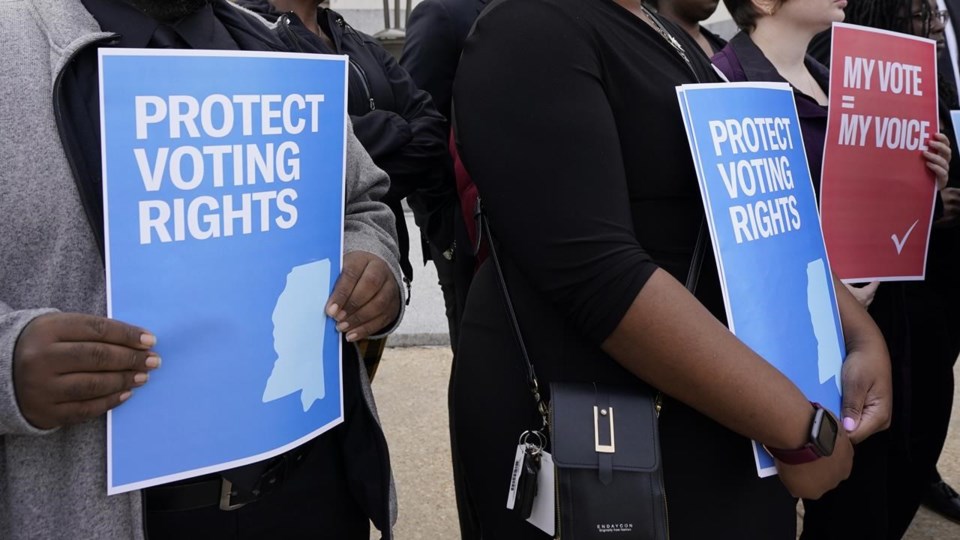JACKSON, Miss. (AP) — One month after Mississippi's November statewide election, voting rights groups say election officials in the state's largest county have failed to provide enough information about the problems that led to polling precincts running out of ballots.
The coalition of statewide and national civil rights organizations has requested meetings and more details about why Hinds County Election Commissioners ordered the wrong ballots, leading to shortages at several polling locations on the day the state was deciding a competitive governor’s race and a full slate of down-ballot races. Those queries have largely been met with silence, the groups said at a joint news conference Thursday.
“While we recognize and respect the commissioners have taken responsibility for the ballot shortages, Hinds County voters still have questions,” said Amir Badat, an attorney with the NAACP Legal Defense Fund.
The five Hinds County Election Commissioners did not immediately respond to emailed questions Thursday.
In Mississippi’s Nov. 7 general election, up to nine voting precincts ran out of ballots in Hinds County, home to Jackson. People waited up to two hours to vote as election officials made frantic trips to office supply stores so they could print ballots and deliver them to polling places. Voting groups and political parties filed legal papers that aimed to keep polls open later or prevent them from staying open. Multiple court orders and disputes over how to interpret them added to the confusion.
Hinds County is majority-Black and is a Democratic stronghold. It’s unclear how many people left without voting and the political affiliations of the most affected voters. Precincts in Clinton, a neighboring city home to Mississippi's outgoing Republican House speaker, were among those affected.
The Election Day debacle has led to bipartisan backlash. Rep. Bryan Steil, a Republican from Wisconsin who chairs the congressional committee with oversight of U.S. federal elections, sent a letter obtained Wednesday by The Associated Press to the five-member Hinds County Election Commission, all Democrats. He demanded information on what steps local officials will take to prevent polling precincts from running out of ballots in future elections.
The Mississippi Center for Justice, a nonprofit legal group, submitted a public records request to the election commission and the Hinds Circuit Clerk asking for documents they said could reveal more about what caused the ballot shortages and how officials responded. The Circuit Clerk responded to the request. The Election Commission hadn't yet done so Thursday, the group said, even though the legal deadline for a response had passed.
“We need to make sure that they fulfilled their legal obligations to those voters,” said Harya Tarekegn, the legal group's policy director. “If not, we will use our legal tools to hold them accountable.”
The election commissioners have said they used the wrong voter data to order ballots. As a result, they did not account for the changes that went into effect after the latest round of legislative redistricting.
The voting groups' request for a meeting with the commissioners was denied, but they urged residents to attend the commission's monthly meeting on Dec. 12.
“Our election officials failed us in ensuring that every eligible voter had an equal and fair opportunity to cast their ballot,” said Arekia Bennett-Scott, the executive director of Mississippi Votes. “We must demand that every eligible voter has clear, unimpeded access to the very thing our belief in democracy is grounded in: the opportunity to be heard and counted.”
___
Michael Goldberg is a corps member for the Associated Press/Report for America Statehouse News Initiative. Report for America is a nonprofit national service program that places journalists in local newsrooms to report on undercovered issues. Follow him at @mikergoldberg.
Michael Goldberg, The Associated Press



